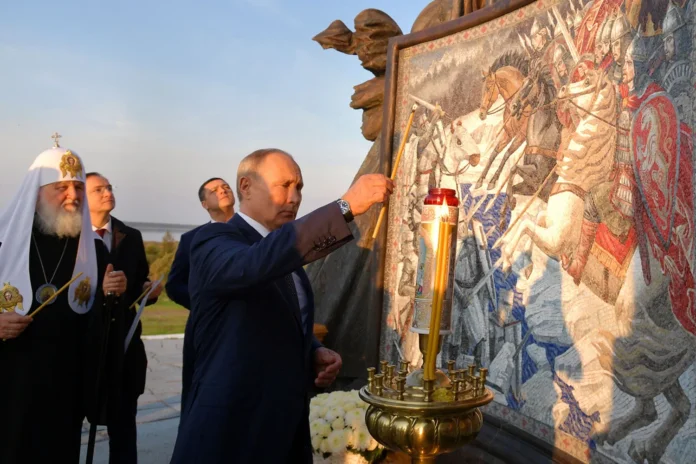Author: Michael Hirsh
Affiliation: Foreign Policy
Organization/Publisher: Foreign Policy
Date/Place: March 12, 2022/USA
Type of Literature: Analysis
Word Count: 2877
Link: https://bit.ly/3i8C8c8
Keywords: Russia, Putin, West, Eurasia, Christianity, Liberalism,
Brief
The author goes to history to understand the Ukrainian invasion and Putin’s long-standing hatred of the West. He argues that Putin’s view, which is shared by other Russian elites, will exist regardless of what happens in Ukraine and to himself. Why does Putin feel this way? Following the liberalization of many Eastern Europe countries, Ukraine was the redline for Moscow in what Putin describes as a series of humiliations that go back all the way to the European Enlightenment of more than three centuries ago. More specifically, Putin sees himself as the champion of Russian civilization that extends back to the Kievan Rus empire, whose capital was Kyiv. In that, Putin believes that Ukraine should not be a separate country. Those beliefs were echoed three days before the invasion. Eurasianism is a second historical framework that fuels Putin’s beliefs. He believes that Russia is a distinct civilization that has little in common with the West. Notably, some view Orthodox Christianity as superior to Europe’s liberalized Christianity that was corrupted by the enlightenment. In the early 19th century, Russia adopted the slogan “Orthodoxy, Autocracy, Nationality” as a conceptual foundation of the Russian empire in response to “Freedom, Equality, Fraternity” of the French Revolution. Based on the above, it is worth noting that Putin has disavowed the USSR and believes that Marxism-Leninism is another regrettable Western import. Rather, Putin is more of a “messianic nationalist and Eurasianist who keeps going back to Kievan Rus.” “Strategic depth” is another historical concept that pushes Putin, where a state has to have a buffer area to fend invaders. To Putin, the post-Cold War period was about redesigning borders and power. This view is fueled by Nazi Germany’s invasion of Moscow, as well as other invasions on Russia throughout history. Fighting Naziism, in particular, was cited as a reason for the Ukraine invasion. The concept of a “greater Russia” has always been existent in the Russian collective memory. It is a concept shared by thinkers, including Dostoevsky for instance, and Russian rulers. Decrying the humiliation the USSR suffered at the hand of the West raised Putin’s popularity as his people shared the feeling of national injustice, like Germans did in post-WWI. Lastly, Russia’s fear of democracy is rooted in its self-conception as an empire. As it rules over a wide range of different ethnicities, liberal democracy might lead to disintegrating Russia.
Critical Commentary: The author highlights different historical frameworks that shape Putin’s views on Ukraine and the West, which are evidenced by Putin’s statements and explain his behaviors. However, the author’s liberal-centric view dismisses legitimate concerns and grievances. The article fails to present a balanced case for that reason. Also, Russia’s fear of democracy with its empire mindset was a relevant point that deserves more elaboration.
By: Hamza Emir, CIGA Research Assistant




